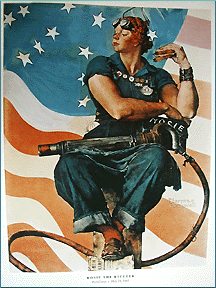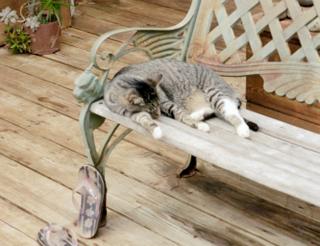 I confess. I read the obituaries. In them I find inspiring stories about ordinary people who give birth to extraordinary accomplishments... people like Imogene Fagan.
I confess. I read the obituaries. In them I find inspiring stories about ordinary people who give birth to extraordinary accomplishments... people like Imogene Fagan.During World War II, as more and more men joined the armed forces to fight the war overseas, women contributed at home, working in the shipyards and manufacturing plants. Their working these jobs challenged traditional notions of women's capabilities. Women in overalls carrying their tools to work inspired the song, Rosie the Riveter, in 1942. Norman Rockwell, one of America's most popular 20th century artists, painted this rendition, published as the cover of the Saturday Evening Post on May 29, 1943.
Imogene Fagan was a Rosie the Riveter. She worked in the Portland Shipyards as a welder during the war. The tradition was that when a landing craft was welded perfectly--with no leaks--the ship was named for the welder. If you follow this link, you will see a picture of Mrs. Fagan atop #939, Imogene Fagan...the ship she welded...perfectly.
Not only did Mrs. Fagan and the other Rosies contribute to the cause of their day by manufacturing the equipment and artillery needed by the military, but they also paved the way for women of the future by breaking down the stereotypes about what a woman can do. I am grateful on both counts.
We won't all get ships named for us and we don't always get to see the impact we make for future generations, but we can still be proud of work done well.
What accomplishments make you proud?
Tell us about a time the energy you put into something paid off.
Go ahead--be proud of your achievements.
I want to hear.
Wanda Tucker, Coach





